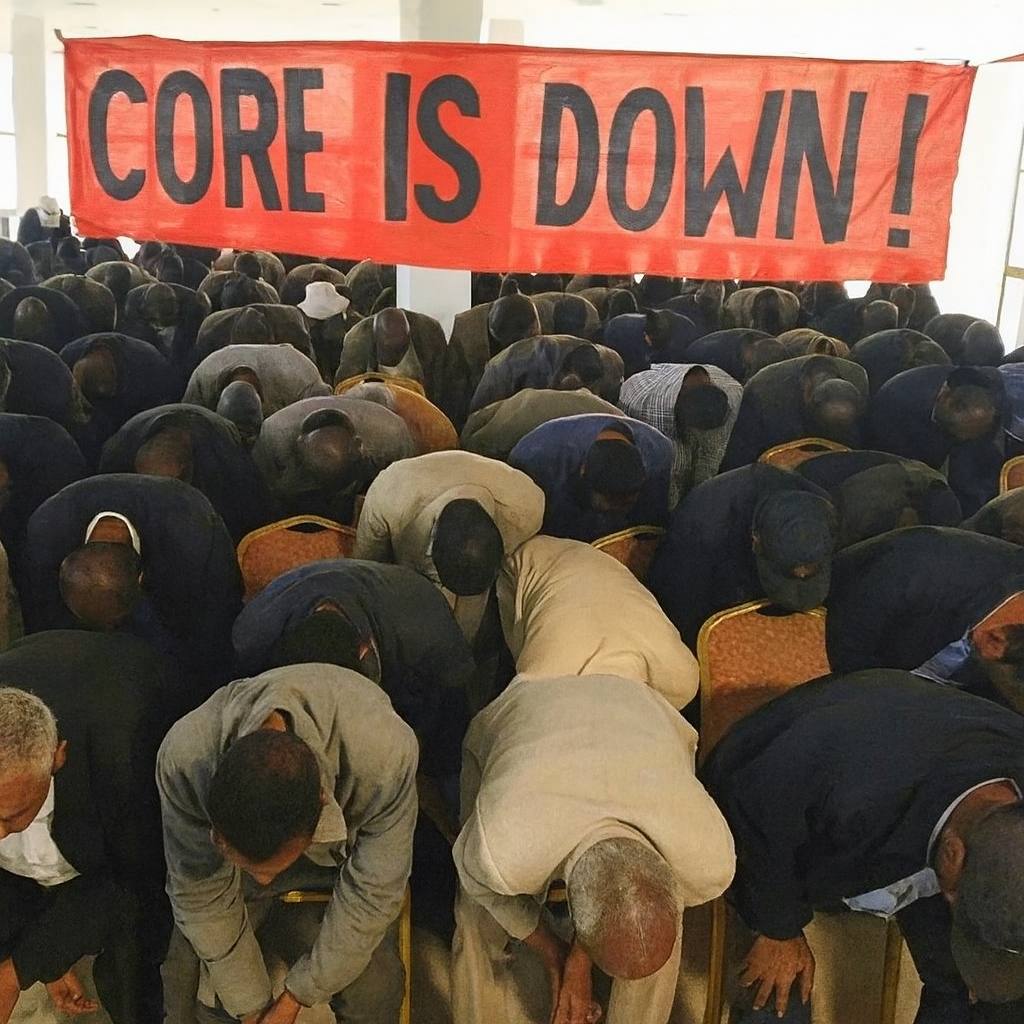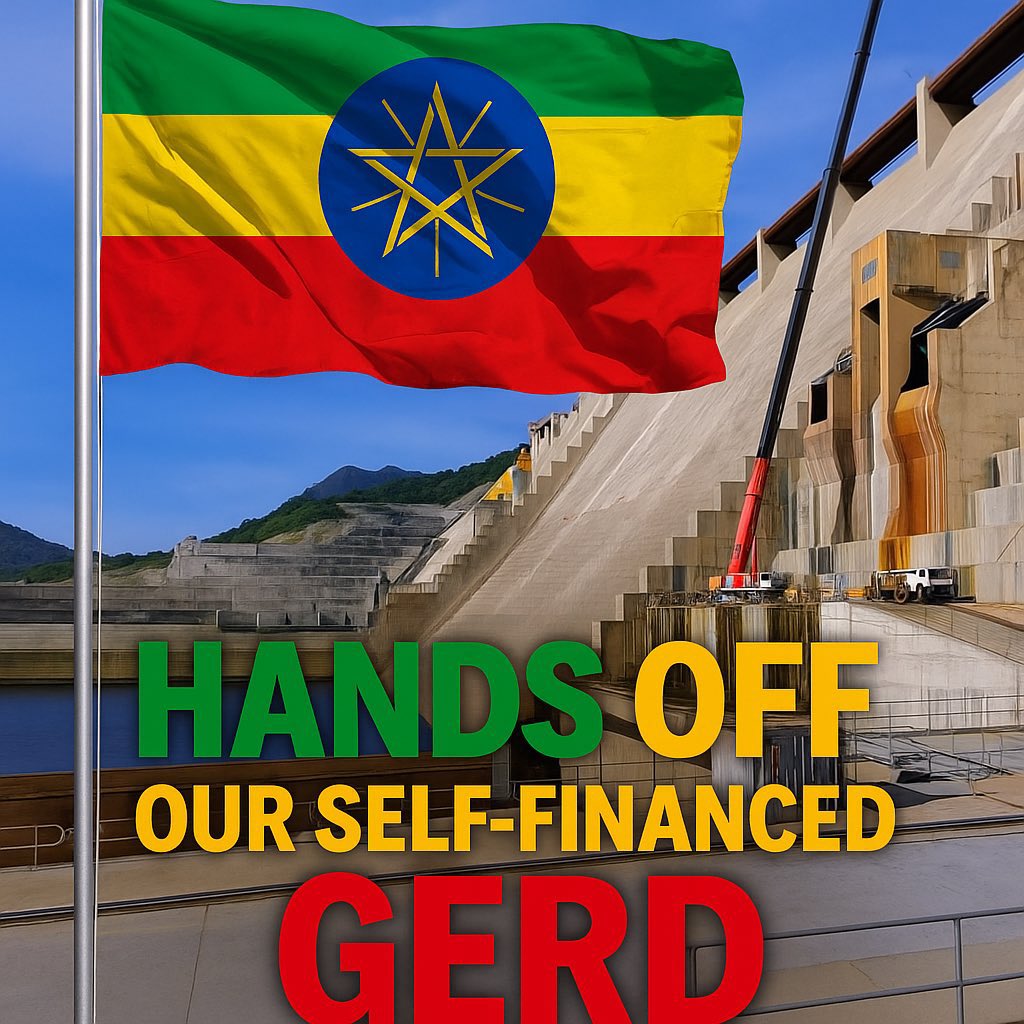Mekelle፡Telaviv, Nairobi, Pretoria, London, (Horn News Hub).
TPLF’s Last Gamble: How Tigray’s “Above-the-Core” Warlords Chose a War They Cannot Win
By Horn of Africa Geopolitical Review (HAGR)
When the Pretoria Peace Agreement was signed in November 2022, it offered a fragile lifeline to a region battered by two years of genocidal war. For many Tigrayans, exhausted by hunger, displacement, and devastation, it was a chance to rebuild. But three years later, that hope is being eroded from within not by external enemies alone, but by a leadership that once claimed to fight in Tigray’s name.
The outlawed Tigray People’s Liberation Front, once hailed as the vanguard of a liberation struggle, has hardened into what analysts call an “Above-the-Core” warlord elite. Figures such as Debretsion Gebremichael, Tadesse Worede, and Fisseha Kidanu, once celebrated for their resistance against overwhelming odds, now stand accused of dragging Tigray into an unwinnable internal war against their own people.
A Legacy of Persistent Failure
The TPLF’s decline, experts say, is not sudden but systemic. “This is not about one bad decision,” said a regional political analyst in Addis Ababa. “It’s about a pattern of failure corruption, miscalculation, and survival through perpetual conflict.”
Observers note how the leadership repeatedly failed to provide credible governance during crises, anticipate foreseeable threats, or pursue diplomacy beyond partisan maneuvering. Instead, political survival was bought through factionalism, corruption, and militarized governance.
The result, according to one Tigrayan academic now in exile, is “a leadership stuck in 1980s thinking clinging to outdated tactics in a 21st-century war.”
A People’s Army Politicized
The Tigray Defense Forces, once seen as a shield for civilians, has been increasingly subordinated to party interests. Critics argue that loyalty to Debretsion and Tadesse has eclipsed loyalty to the people.
“The TDF has been transformed from a people’s army into a party militia,” said an international military observer who monitored the 2020–2022 conflict. “That undermines both its legitimacy and Tigray’s sovereignty.”
The intertwining of politics and military command has also birthed what locals describe as a “war economy,” sustained by smuggling, forced taxation, and illicit trade networks.
Cycles of Miscalculation
From misplaced reliance on Sudan and Egypt to underestimating the devastating role of drones and chemical weapons during the 2020–2022 war, the TPLF leadership has consistently misread both allies and adversaries.
“These are not isolated mistakes,” said a Western intelligence source. “They form a cycle overconfidence, miscalculation, defeat, and then escalation.”
The Raya Crisis: Declaring War on Tigray
The latest example is Raya, in Southern and Southeastern Tigray. According to sources familiar with recent high-level meetings in Aksum and Mekelle in December 2025, TPLF leaders allegedly mapped out a new blueprint for war.
Their directives, insiders claim, included dissolving the Tigray Interim Administration, declaring the Pretoria Agreement “broken,” and ordering civilians to dig bunkers in preparation for renewed drone strikes. Financing was to come from fuel smuggling, looting, and forced “donations.”
Perhaps most chilling were plans to silence dissent through infiltration, kidnappings, and assassinations targeting opposition voices and youth movements.
“This is not defense it is warlordism,” said a civil society activist in Mekelle, speaking anonymously for fear of reprisal. “It is a war against the very people they claim to protect.”
Why a Suicidal War?
If the war is unwinnable, why pursue it?
Analysts point to four key reasons:
Survival through conflict: War shields the leadership from accountability for corruption, military defeat, and genocide-era atrocities.
Eritrean influence: Clandestine ties with elements of President Isaias Afwerki’s regime raise fears of proxy manipulation.
Fear of reform: A peaceful political transition under the Interim Government would dismantle TPLF dominance.
Calculated escalation: By worsening crises, leaders gamble that humanitarian disaster and international sympathy will restore their relevance.
From Proxy Conflict to Political Suicide
By provoking Ethiopia’s federal government while appearing to shield the Eritrean regime, analysts argue the TPLF’s Above-the-Core leadership is walking into a trap. “They are becoming cannon fodder for Eritrea’s proxy strategy,” said one Horn of Africa security expert.
The trajectory, he warned, is not toward victory but toward self-destruction.
The End of an Era
History, the HAGR editorial board concludes, will not record this as resistance but as betrayal. The TPLF’s Above-the-Core are dismantling Tigray from within gambling the lives of civilians for partisan survival.
“Their war is unwinnable. Their strategy is suicidal,” the review states. “Their legacy will be remembered not as liberation, but as the reckless sacrifice of Tigray’s people.”
This investigation is published under the Horn of Africa Geopolitical Review (HAGR) and draws on regional and international military, intelligence, and diplomatic expertise.






